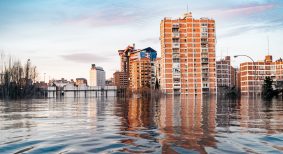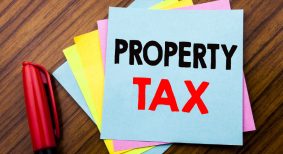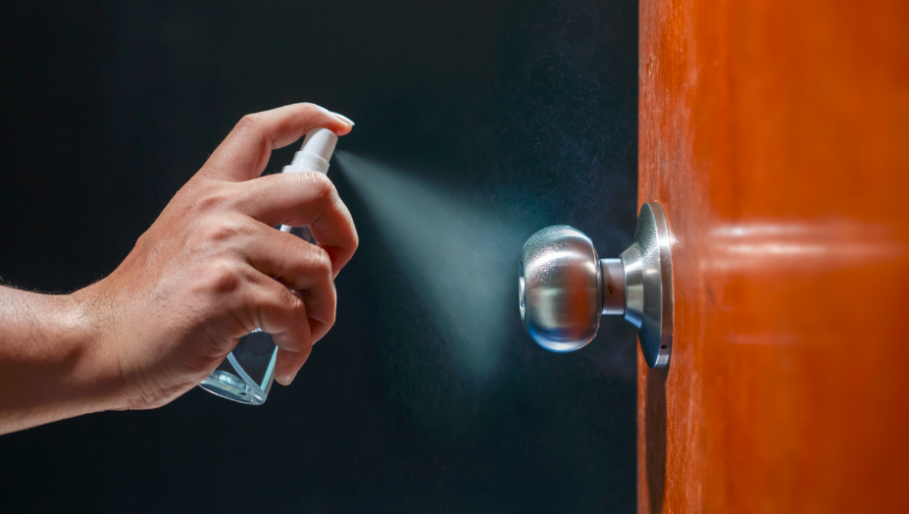All businesses are impacted by the COVID-19 virus, but rental-housing providers play a unique and critical role in the battle to mitigate the spread of this highly communicable disease.
As several Canadian provinces declare a state of emergency and the federal government imposes new and extreme measures to contain the virus, apartment building owners are facing unknown futures with tenants and frontlines staff not only at risk, but potentially headed for quarantine as the virus continues to spread.
In the face of this unprecedented health crisis, how are rental property managers coping? What are the current best practices for keeping people safe? According to multiple industry sources, much of it comes down to preparedness, communication and engaging in hyper-vigilant cleaning practices.
“At Greenwin, we care deeply about our employees, our communities and our residents, and take the COVID-19 situation very seriously,” said Kris Boyce, CEO of Greenwin. “Right now, our focus is on ensuring they have the information, resources and support they need to stay healthy and safe. At this point we are fortunate in that there has not yet been a confirmed case of COVID-19 in any of our buildings, but in the event that this happens we are confident in our level of preparedness.”
In addition to bolstering its cleaning protocols, Boyce said Greenwin has enacted several measures to limit exposure, including the distribution of first-line-of-defense health tips, the temporary closure of amenity spaces, restricting access to management and leasing offices, and deferring all non-essential maintenance across all of its properties.
“From the onset of the outbreak, we’ve strived to be proactive and flexible with our response,” she said. “With circumstances changing on a day-to-day basis, we are committed to closely monitoring the situation and putting protocols in place that align to the best practices recommended by Canadian health authorities.”
Proactive, preventive measures to reduce the spread of COVID-19
At this point, it goes without saying that maintaining a clean, sanitized building will only help to reduce the spread of COVID-19. Common areas, communal surfaces, lobby door handles and elevator buttons should all be cleaned regularly to prevent transmission of the illness.
Some experts suggest that cleaning supplies and tools be distributed to all employees, and not just the cleaning staff, to better ensure surfaces are continually disinfected. Residents should also be reminded to keep a safe distance from one another and limit their touch points as they pass through the building and throughout the apartment grounds.
In addition to these measures, BOMA Canada advises property managers to update their communications protocol in order to relay best hygiene practices, as well as the steps to follow should someone become infected. It also recommends conducting preparedness tests to anticipate challenges and implement any lessons learned.
Meanwhile, as the number of cases continues to escalate across Canada, governments are rapidly putting in place new measures that are precautionary to minimize the risk of exposure and spread. Instances of individuals being instructed to “self-isolate” are rising, with many fearing an imposed lock-down might be in our future.
According to the Federation of Rental Housing Providers of Ontario (FRPO), rental property owners should keep tenants well-apprised and informed of any new developments as soon as possible. “Notices should be posted at building entrances, on tenant notification boards and in common areas providing the latest updates on the situation, including guidance from local public health authorities,” it advises.
If there is a presumed or confirmed case of COVID-19 in any rental property, local public health authorities should be immediately notified, and any medical directions they provide should be followed diligently. But due to privacy laws, FRPO stresses that landlords should not identify by name anyone in the building who’s been infected, reminding housing providers that it’s the role of public health authorities to reach out to any other tenants who may have come into contact with that individual.
As the COVID-19 health crisis worsens putting vulnerable citizens at risk, it is critical that landlords exercise extreme caution and do everything necessary to prevent the spread of infection, no matter how great an inconvenience it might be for tenants. “We realize that we may never know if these measures were an overreaction, but we would rather overreact in the interest of protecting our residents and employees than underreact,” Boyce said.







As a manager of multiunit apartment buildings, I would like to know the rules about self-quarantining. We have seen several tenants returning from trips out of country who are not isolating themselves inside their apartments, but rather move freely within the building, as well as walking their dogs outside, including down the city sidewalks and pathways.
Is an apartment considered under the same rules as a house when self-quarantining? Does this mean staying inside their unit for 14 days and not leaving it at all?
I am also an apartment manager and very upset that the province has given us
NO GUIDANCE WHATSOEVER FOR MULTI-UNIT RESIDENCES (even until today, March 25, AFTER the end of March Break, and when the Fed govt is invoking the Quarantine Act & mandatory self-isolation for 14 days for all returning travellers).
I myself have instructed the people returning from travel that they may not stop anywhere on the way home and that members of their household must not go in common areas, especially the laundry and mail-rooms. Personally I would like to see the whole household (including those that have not travelled) quarantined WITHIN their apartment for two weeks. Of course this will be hard to enforce, but I also said that if they have , But my building is small and I am strict ordinarily.
I post in public, and enforce by personal notes/texts the rules for self-isolation as they are published by Health Canada. These rules were made for people with a confirmed infection, but not updated yet for quarantined travellers. Its the best information we have, even though some Tenants might think it’s “over-kill” with no infection. Until Midnight tonight, the returned travellers will not be tracked, but after that I there will be an enforcement method. You or I wouldn’t know when they arrived, so I would treat all returned travellers equally.
the travellers are angry with me, especially because some have already just arrived from a country where they have already been under quarantine. They escaped the other quarantine to come to mine, so I understand the frustration. Even though I, and other healthy tenants have offered ANY ASSISTANCE whatsoever, they are not happy.
BUT I DON’T CARE if they are unhappy, and this is why:
As far as I am concerned the Landlord has a right to make rules and regulations as needed to ensure the health and safety of ALL tenants and property. I put myself at risk, sanitizing the whole place several times a day for two weeks now (cleaners do not wish to work in the common areas and I don’t want to push them, so that they stay on as employees later), and I consider all the elderly and special needs and disabled tenants to protect to my best ability. If the globetrotters do not wish to obey I would consider giving them an N7
for serious impairmant/danger to Landlord’s interests or other interests of the complex. At least there’s a message of some kind. To what degree will the Landlord be liable if there is an outbreak in your building? If one of our staff gets infected because we did nothing to control the Tenants? Some Tenants have lately thrown around “ha-ha no evictions, I’m not paying rent” based on Provincial announcement (and the talkers are the usual suspects- Tenants who are able to pay, just wishing to be jerks ; not the truly laid-off and scared, who have been very quiet) so I believe I can throw back N5s and N7s to whoever wishes to be selfish about self-isolation in this crisis of CONTAGIOUS ILLNESS, knowing fully-well that enforcement can’t happen until once this has all blown over. To me, this is about using the best information out there to protect the interests of the complex and ALL the residents. If the government doesn’t tell us what to do -MY advice is, be strict, and do your best, based on the information out there and knowing what you know about the structure of your building, etc., and OFFER ASSISTANCE if you as Landlord have more power & resources than the tenant.
Other jurisdictions have made good multi-unit & shared laundry/laundrette instructions. Govt of UK & City of Ottawa for example – google around ; GOOD LUCK.
I think our present duty and obligations as Landlords and Property Managers of people in shared, close quarters, is higher than individual homeowners.